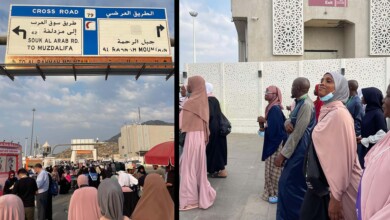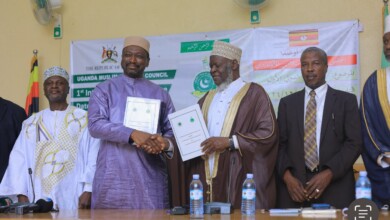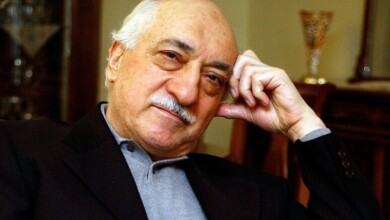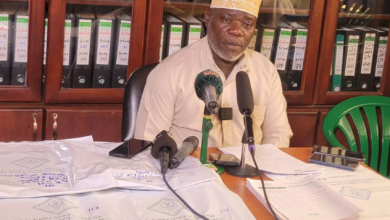A Muganda Muslim redefining leadership across Uganda’s heartland
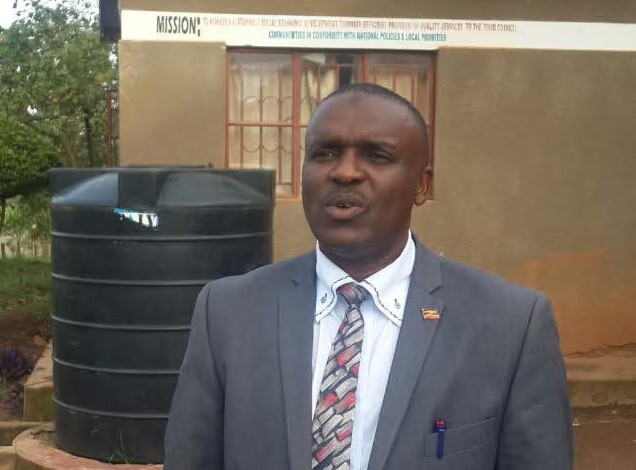
By Iddi Ismail Ssessanga
In a high-ceilinged conference hall bathed in warm light and quiet authority, seated among Uganda’s top civil servants, is a man whose presence defies bureaucratic convention. Clad in a pinstriped suit and a signature red-patterned tie, he carries not only documents but the weight of lived experience — and of transformative service.
He is Alhaji Badru Mayanja Majwala, fondly known in administrative circles as Hajji CAO — currently the Chief Administrative Officer of Kazo District in Western Uganda. But what truly makes his journey remarkable is where he comes from — and where he has gone.
Born and raised in Kitanga Parish, Kimanya Division, Kabonera Sub- County, in Masaka City, Hajji Majwala is a Muganda by ethnicity and a devout Muslim — and yet, over the years, he has earned the unwavering trust of communities far from his cultural roots. His career is not merely a tale of upward mobility; it’s a map of national integration, patience, and proof that service transcends tribe and religion.
Breaking ground in Rukungiri
Hajji Majwala’s first major assignment placed him in Rukungiri District, a predominantly Bakiga region in Uganda’s southwest. From day one, challenges loomed. The District Chairman, reflecting the community’s initial discomfort, was hesitant to welcome a Muganda — and a Muslim at that — into the district’s highest administrative office.
But what followed surprised many.
“He didn’t come in with force or entitlement,” recalls a retired Rukungiri official. “He came in to listen.”
Through grassroots engagement, transparent systems, and genuine partnership with local leaders, Hajji CAO not only gained acceptance — he became indispensable. His leadership stabilized operations, strengthened service delivery, and elevated the district’s efficiency in ways that even sceptics couldn’t ignore.
When his transfer to Kisoro was announced, the reaction in Rukungiri was unprecedented. Community leaders and civil servants alike pleaded with authorities to let him stay. But his time had come.
Embraced in Kisoro
Kisoro District, bordering DRC and Rwanda, is known for its beautiful terrain and cross-border complexities. Yet here too, Hajji CAO’s leadership took root quickly.
District Chairman Abel Bizimana, senior officers, and even junior staffers soon grew fond of his steady hand and inclusive leadership. Whether handling sensitive cross-border logistics or smoothing local administrative wrinkles, he became the pillar many leaned on.
Perhaps no moment defined his impact more than the farewell organized in his honour. The Resident District Commissioner, Hajji Badru Sebyala, a seasoned public servant himself, couldn’t hold back tears as he bid goodbye to a man he called both “colleague and brother.”
Now in Kazo: A leader at home among strangers
Today, Hajji Badru Majwala serves as CAO of Kazo District, nestled deep in Banyankole territory. Once again, a Muganda and a Muslim is at the helm of a dominantly Ankole community — and once again, he is excelling not despite his background, but because he embodies Uganda’s promise of unity in diversity.
He is respected by cultural leaders, trusted by political figures, and admired by everyday citizens who see in him something rare: a public servant driven not by ego, but by responsibility.
Hajji CAO’s journey — from Kitanga to Rukungiri, Kisoro, and now Kazo — is a powerful reminder that Uganda’s strength lies not in uniformity, but in shared values: discipline, humility, and service.
He continues to rise not because he fits into a mold, but because he redefines what public leadership looks like in a multicultural nation. His story resonates beyond districts and into the soul of a country still grappling with identity and cohesion.
If there is a face of inclusive governance, it is his.
“I’ve learned that people don’t care where you come from — they care if you care. Serve them truthfully, and they will make you one of their own.” — Hajji Badru Mayanja Majwala.



